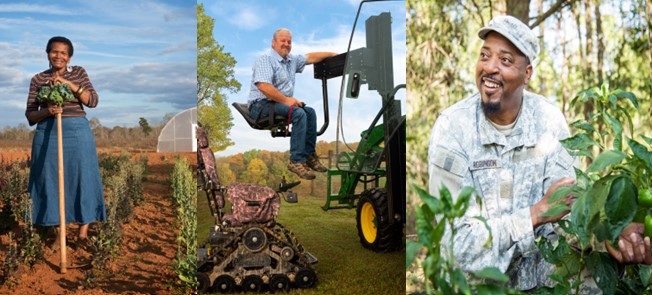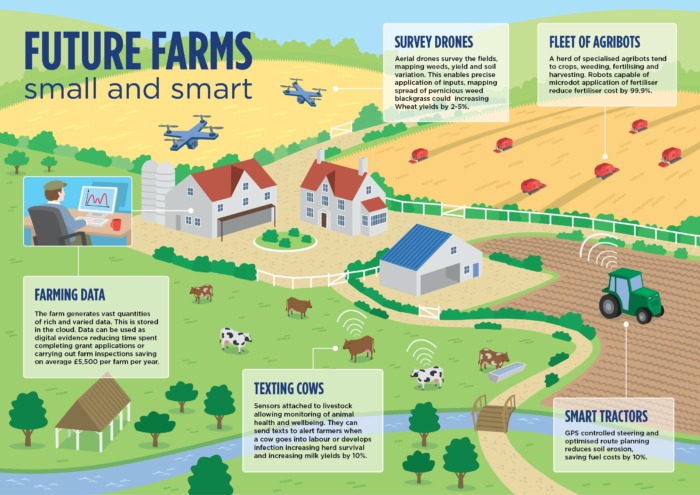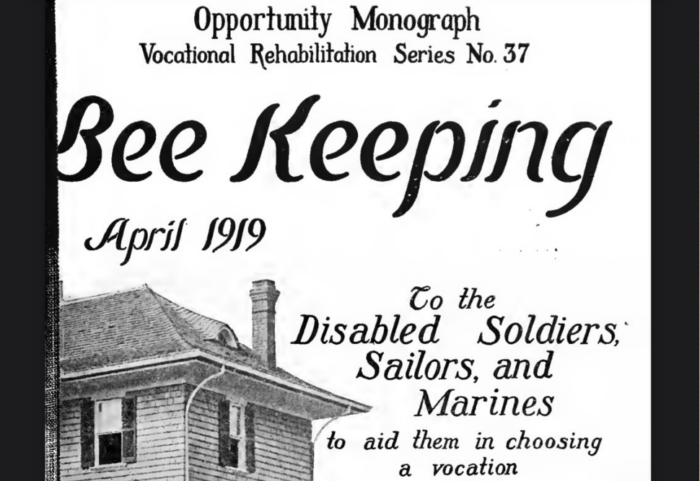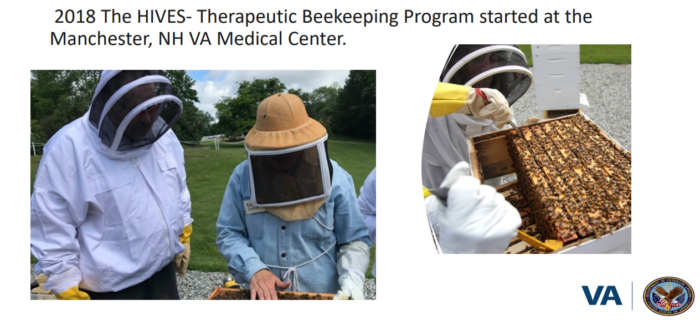
From cow-tracking sensors and robotic milking to aerial drones overlooking crop fields, farming now looks more like a science-fiction adventure than an old-fashioned endeavor. This week (March 25-28), the AgrAbility National Training Workshop in Atlanta is highlighting such advancements in agricultural technology for farmers with disabilities.
Sponsored by the U.S. Department of Agriculture (USDA), the National AgrAbility Project (NAP) operates out of Purdue University’s Breaking New Ground Resource Center. The program “provides assistance to farmers, ranchers, other agricultural workers, and farm family members impacted by disability.”
Purdue’s dedication to farmers with disabilities dates back to the 1950s, when the university organized “one-handed corn picker clubs” for the significant number of farmers with upper limb injuries due to corn picking machines.
Now, the NAP introduces agricultural workers to safer, more sophisticated equipment and technology that increases their independence on the farm.
For this week’s training event, NAP Project Manager Paul Jones said: “We’re excited to have 275 registrants, our highest-ever attendance. This includes approximately 80 farmers or ranchers, many of whom have never before attended our national conference. In addition to the educational aspect of the conference, there are many networking opportunities that can open doors of continuing support and growth for both our staff members and their clients.”
Farming Like It’s 2024
The first big presentation of this week’s training conference is “Farm Like It’s 2024: Adaptive Devices and Technology for Safety and Wellbeing.” This gives farmers a look at technology that provides a more precise overview of their farm’s health while also putting less physical demand on them.

For example, electronic ear tags on livestock allow farmers to monitor their cows from a distance and receive text alerts if one goes into labor or develops an infection. Early health detection allows for better breeding, more accurate medical treatment and more efficient farm production.
For farmers with limited mobility, “smart tractors” — such as the Monarch — not only provide a driverless option but reduce emissions by running on electricity, and they also decrease soil erosion through GPS-controlled steering and optimized route planning.
The AgrAbility conference is unique in that it won’t merely highlight the practical, physical solutions of accessible farming, but it will explore the mental and emotional benefits as well.
The Healing Power of Honey
The presentation most focused on mental health is “Accessible Beekeeping: Improving Quality of Life with Therapy and Assistive Technology.”

Beekeeping has been part of the disability community for a long time. Since World War I, beekeeping has been promoted as a vocational rehabilitation solution for veterans with disabilities. In the 1920s, the increased demand for honey amid the sugar shortage naturally made beekeeping a go-to job, but it was a particularly good fit for injured veterans convalescing in the countryside, as it required little muscular effort. The U.S. government also provided free prosthetic hands and arms, allowing them to move hives and frames of comb more easily.
As the presentation shows, beekeepers now have access to colony monitoring technology as well as assistive moving devices and lifts. But there’s even more evidence of beekeeping’s benefits for veterans with disabilities today than during WWI.
“One new aspect of this year’s conference is that Joe Ricker, NAP’s veteran outreach coordinator, will discuss therapeutic beekeeping at a VA medical center in New Hampshire,” Jones said.

The presentation explores the meditative nature of beekeeping and how it has helped veterans improve their PTSD, anxiety, depression and overall quality of life.
Growing Better Lives
One of the conference’s presentations is devoted entirely to AgrAbility’s data regarding clients’ quality of life. For example, “69% of AgrAbility clients reported improving all parts of their life — physical, emotional, social, spiritual, and financial between when they began and completed their work with AgrAbility in 17 states.”
“De-Stigmatizing Disability within the Farming Community” is another presentation that should foster productive conversations about seeking help and increasing awareness of programs like AgrAbility.
“Creating Reliable Plans for DIY Assistive Technology” gently calls out farmers for fabricating their own solutions to disability barriers that may not be as safe and dependable as they expect.
“This is the first time in recent memory that we’ve tackled the issue of making reliable DIY devices during a conference,” Jones said.
Like the conference itself, these presentations ultimately encourage farmers to speak up and not hide their disabilities but to move toward proven solutions from compassionate providers like NAP.
For those unable to attend the AgrAbility National Training Workshop conference in person, many of the aforementioned presentations are currently available to view under the Schedule section of the event’s landing page.

